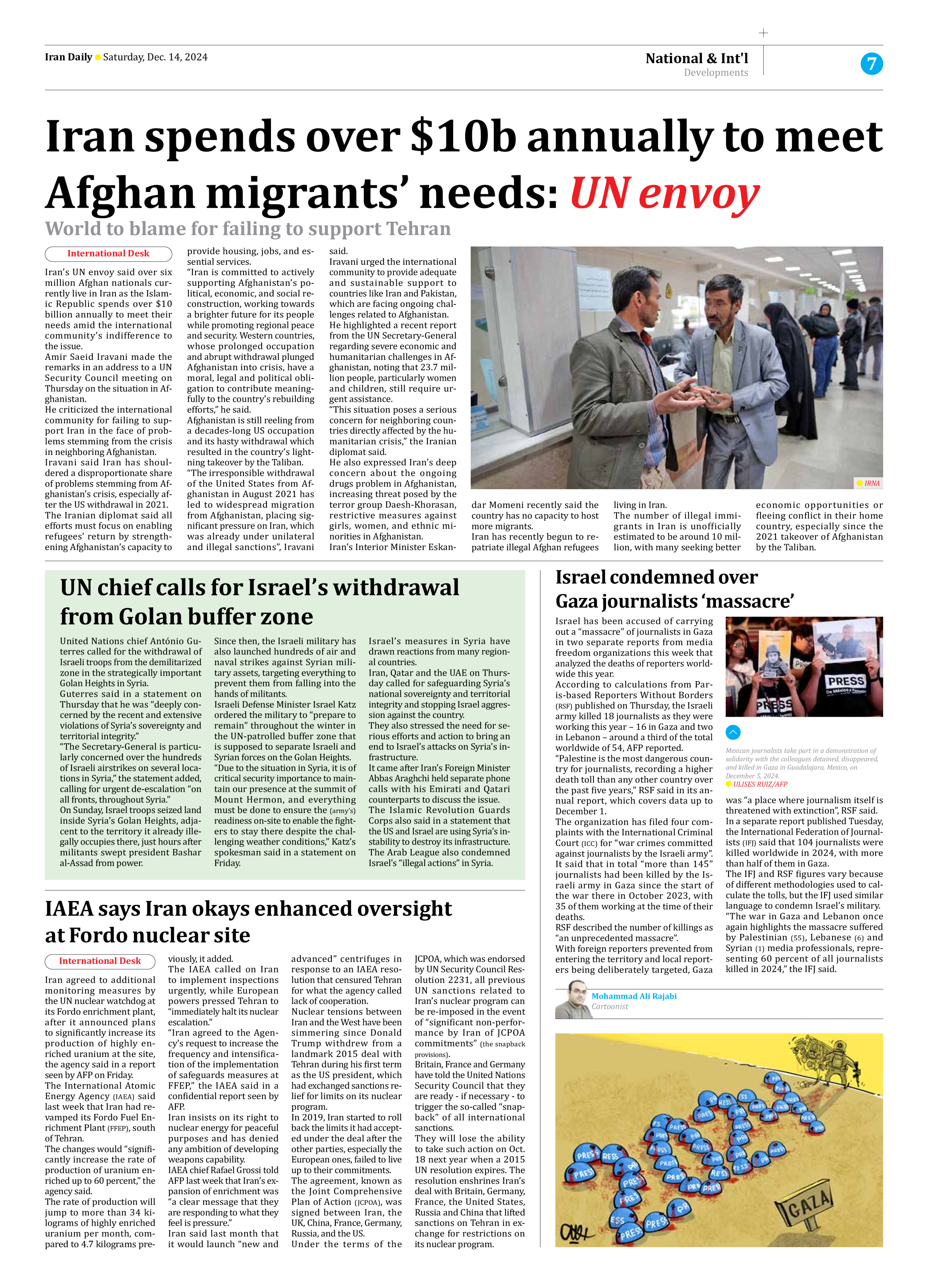
IAEA says Iran okays enhanced oversight at Fordo nuclear site
Iran agreed to additional monitoring measures by the UN nuclear watchdog at its Fordo enrichment plant, after it announced plans to significantly increase its production of highly enriched uranium at the site, the agency said in a report seen by AFP on Friday.
The International Atomic Energy Agency (IAEA) said last week that Iran had revamped its Fordo Fuel Enrichment Plant (FFEP), south of Tehran.
The changes would “significantly increase the rate of production of uranium enriched up to 60 percent,” the agency said.
The rate of production will jump to more than 34 kilograms of highly enriched uranium per month, compared to 4.7 kilograms previously, it added.
The IAEA called on Iran to implement inspections urgently, while European powers pressed Tehran to “immediately halt its nuclear escalation.”
“Iran agreed to the Agency’s request to increase the frequency and intensification of the implementation of safeguards measures at FFEP,” the IAEA said in a confidential report seen by AFP.
Iran insists on its right to nuclear energy for peaceful purposes and has denied any ambition of developing weapons capability.
IAEA chief Rafael Grossi told AFP last week that Iran’s expansion of enrichment was “a clear message that they are responding to what they feel is pressure.”
Iran said last month that it would launch “new and advanced” centrifuges in response to an IAEA resolution that censured Tehran for what the agency called lack of cooperation.
Nuclear tensions between Iran and the West have been simmering since Donald Trump withdrew from a landmark 2015 deal with Tehran during his first term as the US president, which had exchanged sanctions relief for limits on its nuclear program.
In 2019, Iran started to roll back the limits it had accepted under the deal after the other parties, especially the European ones, failed to live up to their commitments.
The agreement, known as the Joint Comprehensive Plan of Action (JCPOA), was signed between Iran, the UK, China, France, Germany, Russia, and the US.
Under the terms of the JCPOA, which was endorsed by UN Security Council Resolution 2231, all previous UN sanctions related to Iran’s nuclear program can be re-imposed in the event of “significant non-performance by Iran of JCPOA commitments” (the snapback provisions).
Britain, France and Germany have told the United Nations Security Council that they are ready - if necessary - to trigger the so-called “snapback” of all international sanctions.
They will lose the ability to take such action on Oct. 18 next year when a 2015 UN resolution expires. The resolution enshrines Iran’s deal with Britain, Germany, France, the United States, Russia and China that lifted sanctions on Tehran in exchange for restrictions on its nuclear program.







